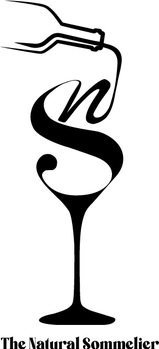NATURAL WINE – WHATS ALL THE FUSS???
We live in a world now where the essence of where produce comes from is sometimes more importance than the very nature of why it is being used in the first place. Society is keen to uphold their believe that having a greater knowledge of the environment in which a product was created will thus allow us to have a greater understanding of our impact on the world in which we live.
When it comes to wine however many people are still “ab-horrent” to the understanding of what goes into a bottle of wine and thus what we are drinking. The key words; natural wine, organic, biodynamic or minimal intervention are often used a lot these days by both wine makers and Sommeliers to appeal to people that drinking these styles of wines are better for you and therefore the planet. I must admit – I agree.
Let’s be quite clear (regardless of you believe), we are living in a time where the world is warming up – that much is clear…. wine makers are having to come up with clever and creative ways to rise to the challenge. Personally, I feel this is a very good thing as it allows us to have a greater understanding of what is going into our glass and what impact we are having on the environment. The idea of “natural wine” is a recent term brought about to describe a wine that is essentially the truest expression a vineyard and place – without the use of any chemical pesticides/herbicides or intervention. It’s a great way to show of your vineyard to the world – without having to rely on technology to get you there. There are obviously some drawbacks, but with the world changing at such a fast rate (climate change) surely this is the right way to go?
The very notion that a bottle of wine could contain nothing more than simply “fermented grape juice” sounds crazy to a lot of people still currently. The idea that you could have a wine that contains nothing apart from the produce of the vine from which it was made sounds rather far-fetched to some but inspiring to others. I personally love the idea of having a bottle of wine that personifies the place from which it came – that doesn’t have the grandness of more modern wine making techniques, but has a back story that is far more intriguing than the price tag of some rather expensive bottles.
There have been a few “key-players” in this field now for many years; Radikon (Italy), Nicholas Joly (Loire Valley, France), Emidio Pepe (Italy), Domaine Lapierre (Beaujolais, France) to name a few. These guys have gone against the norm for many a year now – deciding that this way to truly make wine. Using minimum or no sulphur and hardly any intervention in the vineyard…. These wines are truly remarkable.
Some of my favourite producers working in this style are below:
Judith Beck, Blaufrankisch, Austria, 2017
This producer has long been a favourite of mine. Her minimalistic wine style, and purity of fruit is one that captivated me. Her Blaufrankisch is a real gem; dark crunch fruit (ripe bramble, blackcurrant aromas) with a herbal leafy character. The wine shows subtle tannins and a refreshing acidity. This is a great starting point for the world of natural wine in my view, as it is so approachable, and very easy to drink. The wine has been fermented naturally in large wooden vats before being put through malolactic fermentation also.
Pithos Rosso Cos Giusto Occhipinti, Sicily, Italy, 2015
This is one of my favourite finds of 2019. A blend of 2 local grapes; Nero d’Avola & Frappato that has been fermented in Amphorae with minimum sulphites used. I love the intriguing aromas of wild red cherries, wild strawberries and loganberries. There is a warmth to the wine that lends an intriguing floral character of rose petals and fresh violets too. Having not seen any oak the wine is super fresh, lively and fun. COS began life back in the late 1980’s, when 3 mates began vinifying grapes from their parent’s vineyard. After a few years of trial and error (mostly with too much oak), they quickly saw the potential of not interfering with the wine too much and taking a more naturalistic approach, thus COS was born as we know it today. Their wines are simply spellbinding – terrifically good value for money and a superb addition to any dinner table.
This article was published in www.chefpublishing.com in February 2020



